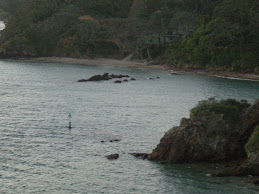The turmoil continues in the US despite the US Federal Reserve pumping in US$80 billion to salvage AIG. Across the world, people holding AIA insurance policies are fretting. Over in Singapore, people are rushing to redeem their AIA policies (AIA is owned by AIG). I am tempted to post it, but I should not.
On Tuesday, the US Federal Reserve left its benchmark lending rate unchanged at 2 percent – a signal that the US economy is not about to tank. This has been worrying many people around the world. The US remains the world’s largest economy until China overtakes it. We have to wait and see if the credit crisis in the US will choke US growth and cause the Fed to act soon on cutting rates.
Across in China, the Central recently moved to make money cheaper. One would think that the US needs more of a kick-start than China, whose economy is still suffering from excessive consumption. China has been on a growth binge for over 9 years. And this week, its Central Bank moved to reduce the benchmark loan interest rate and the reserve requirement ratio for commercial banks – a move usually taken to mean the government wants cheaper liquidity to fuel growth in the economy.
China’s decade of growth
China’s obsession with economic growth is mindboggling. Mindboggling because the economic rain makers are bent on keeping growth going. I would say, let the economy slow down, let it turn negative for a few years. Let there be a recession. Didn’t our mothers and grandmothers tell us they grew up during the war, or during the depression. ‘Every generation needs a war’ or ‘Every generation needs to grow up poor’ they used to tell us. I think every now and then, we need to go into recession for a while. This means people will lose jobs; companies will go bankrupt, and we all turn inward for a while – afraid, uncertain of the future. That can be a good period to reconfigure, rethink how we lead our lives.
This is the law of nature – what goes up must come down. Economies grow, economies must turn slow. The globalization of the world has set unreal expectations for our generation. We think that bigger or more is always better.
Small is beautiful
EF Schumacher’s Small is Beautiful is one of my constant companions when I need to remind myself that excessive growth, can be to our own detriment. At this moment in history, we have two choices: to continue growth (using maximum land, capital, labour, technology at all cost) as a way of life, or to focus on maximising the richness of our life by using as little as possible. These two philosophies are extreme opposites – in Schumacher’s view. One has to do with focusing on creating bigger economies using more resources. The other focuses on extending the economy’s lifespan by using as little as possible. I think the choice is clear. The tough part is putting it into action.
Norris House - Claude Megson
9 hours ago





No comments:
Post a Comment
Hi, I welcome your say on the matter!